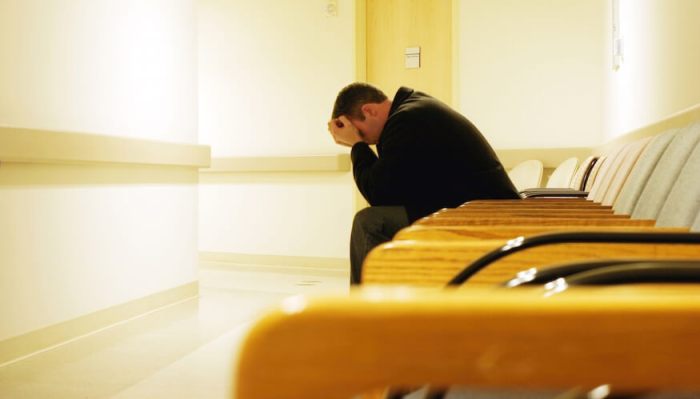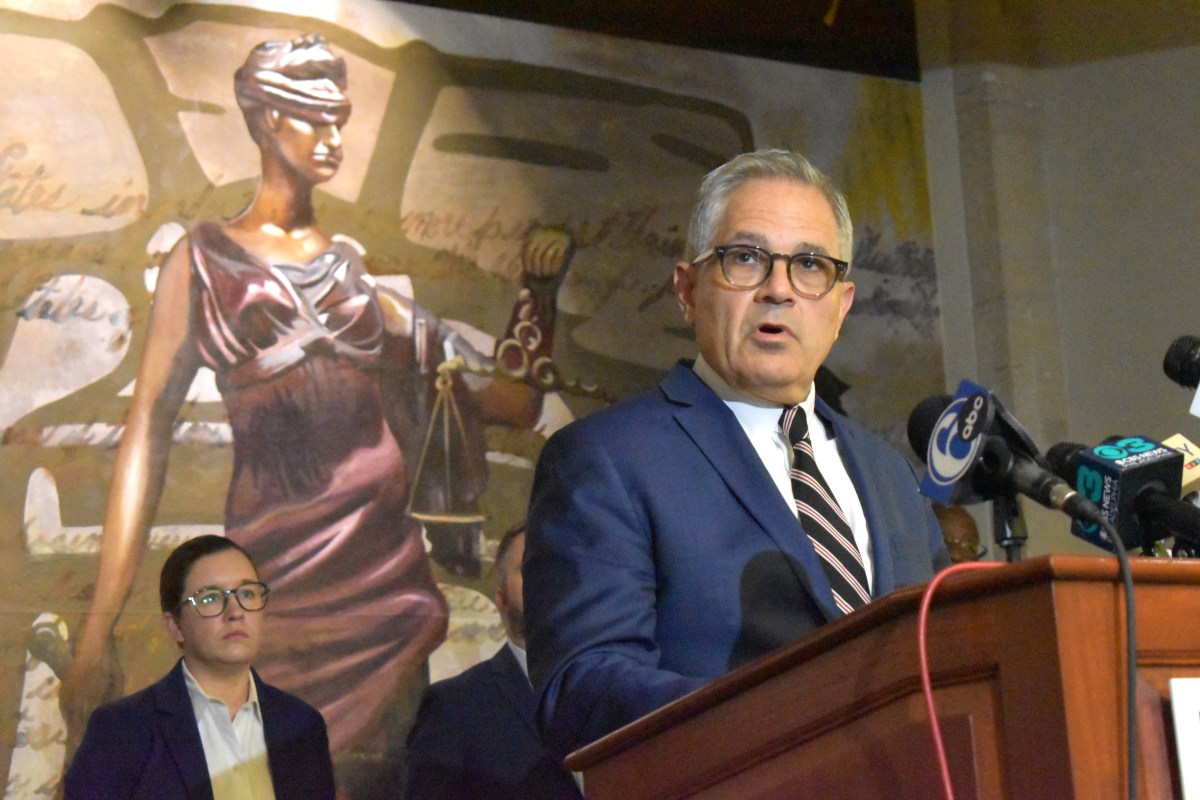When Ethan Smith was 14 years old, he constantly worried about getting sick and knew only way to cope with that anxiety: He took his temperature 70 times a day.
Smith was diagnosed at that age with OCD—obsessive compulsive disorder. But he didn’t receive proper treatment for his mental disorder until he was 31 years old, when he came to McLean Hospital’s Obsessive Compulsive Disorder Institute. “I lost 31 years of my life to some extent, so I really feel like I was reborn after [getting treatment] because living in the moment was completely foreign to me,” he said. “When I got better, I felt like an alien. It’s really strange, and it’s still amazing.” Now 38, Smith returned Boston on Friday as a spokesperson for the International OCD Foundation, which has its headquarters here. The IOCDF is celebrating its 30 years as an organization and just commemorated the end of OCD awareness week. The IOCDF has made great strides for people with OCD in the last 30 years, but it still has a long way to go, said Executive Director Jeff Szymanski.
The IOCD started in Connecticut where a group of people with OCD participated in one of the first studies about the disorder, Szymanski said. The foundation moved to Boston in 2008 to be closer to its vibrant medical community because the organization focuses on financing OCD research. (Although there is no cure for OCD, the compulsions can be managed). Though the foundation has made great strides in terms of growing OCD awareness—more than 1,600 people attended IOCDF’s annual conference this year, four times as many as the first conference in 1993—Szymanski said the mental health community still struggles with the diagnosis and how to treat it. Smith was lucky that he was correctly diagnosed so early. More than 3 million adults live with OCD in the United States, but physicians misdiagnose patients 50 percent of the time and mental health professionals a third of the time, Szymanski said. It took Smith 17 years to receive proper treatment, and that’s a common reality. Szymanski said the average time between a diagnosis and proper care is between 14 to 17 years.
“If you had cancer, who is waiting 14 to 17 years? It’s not acceptable anywhere,” he said. “Yet, it’s the state of things with OCD.”
Both Smith and Szymanski highlighted how OCD has been warped in the public’s eye: It’s not about being “neat” or liking things a certain way. It’s a debilitating medical disability stemming from obsessive, anxious thoughts. “When we’re in our rituals, we don’t want to be doing them,” Smith said. “No one wants to wash their hands 100 times. We know it’s irrational, but we believe we have to do it anyway.” After his diagnoses, Smith met with multiple different therapists, but none of them had ever specialized in OCD treatment or were able to refer him to a specialist.
“What I mean by proper treatment is that a general psychologist is not equipped to treat OCD but roughly most of them think that they are,” Smith said. “And attempting to treat OCD by doing psychotherapy, called talk therapy—well, what happened was it ultimately made my OCD worse and harder to treat in the future.” Szymanski worked as a clinical psychologist at McLean’s OCD Institute before joining the foundation. He explained that while most therapists are trained in psychotherapy—where you talk through your issues and try to uncover how they may have started in your childhood—that’s actually damaging for OCD patients. Instead, professionals need to be trained in Cognitive Behavioral Therapy, and specifically a subset of that called “exposure and response prevention.” In that practice, those with OCD are forced to confront the very things giving them anxiety and prompt their obsessive thoughts. Instead of giving in to their compulsions to ease their anxiety, the patient is forced to sit with it. If someone’s OCD centers around germs, for example, the therapy would involve them touching the floor or something else they consider germ-infested without allowing them to wash their hands repeatedly. “The best way to get over a phobia is to repeatedly expose yourself, and over time your brain stops putting out those anxiety signals,” Szymanski said.
Smith, who underwent the therapy while living in Boston, described it as “torture.” But it’s the reason he’s alive today, he said. He had told his mom that if he ever got better—and for a while, he never thought he would—he wanted to help others like him. “Coming back to Boston and being able to speak in Boston, where I struggled so much, on a national stage, it’s full circle and emotional, but it’s also extremely gratifying,” said Smith, who now lives in Los Angeles where he works as an actor. “This is where I discovered the strength and power of the human condition. This is where I learned what I was made of as a person.”
Foundation marks 30 years of building awareness of OCD

Derek Kouyoumjian/Metro























